- Home
- Douglas Clegg
[Criminally Insane 01.0] Bad Karma
[Criminally Insane 01.0] Bad Karma Read online
Praise for Douglas Clegg
“Clegg’s stories can chill the spine so effectively that the reader should keep paramedics on standby.”
Dean Koontz, New York Times bestselling author
“Douglas Clegg has become the new star in horror fiction.”
Peter Straub, New York Times bestselling author of Ghost Story and, with Stephen King, The Talisman
“Douglas Clegg is the best horror novelist of the post-Stephen King generation.”
Bentley Little, bestselling author of The Haunted
Bad Karma
The Criminally Insane Series, Book 1
Douglas Clegg
Contents
Get Your Free eBook & More
The Criminally Insane Series
Bad Karma
Part I
Chapter 1
Chapter 2
Chapter 3
Chapter 4
Chapter 5
Chapter 6
Chapter 7
Chapter 8
Chapter 9
Chapter 10
Chapter 11
Chapter 12
Chapter 13
Chapter 14
Chapter 15
Chapter 16
Chapter 17
Chapter 18
Chapter 19
Part II
Chapter 20
Chapter 21
Chapter 22
Chapter 23
Chapter 24
Chapter 25
Chapter 26
Chapter 27
Chapter 28
Chapter 29
Chapter 30
Chapter 31
Chapter 32
Chapter 33
Chapter 34
Chapter 35
Chapter 36
Chapter 37
Chapter 38
Chapter 39
Chapter 40
Chapter 41
Chapter 42
Chapter 43
Chapter 44
Chapter 45
Chapter 46
Chapter 47
Chapter 48
Chapter 49
Chapter 50
Chapter 51
Chapter 52
Chapter 53
Chapter 54
Chapter 55
Chapter 56
Chapter 57
Chapter 58
Part III
Chapter 59
Chapter 60
Chapter 61
Chapter 62
Chapter 63
Chapter 64
Chapter 65
Chapter 66
Chapter 67
Chapter 68
Chapter 69
Chapter 70
Chapter 71
Chapter 72
Chapter 73
Chapter 74
Chapter 75
Chapter 76
Chapter 77
Discover this Haunting Thriller
Read this Dark Psychic Thriller
Free Ebook?
Also by Douglas Clegg
About the Author
Get Your Free eBook & More
Get one free ebook, price drop news flashes, book updates, and exclusive offers—become a V.I.P. member of Douglas Clegg’s long-running free readers’ newsletter at
http://DouglasClegg.com/newsletter
The Criminally Insane Series
Enter the corridors of the Darden State Hospital for the Criminally Insane in three page-turning, spellbinding suspense thrillers.
Read them all:
Bad Karma
Red Angel
Night Cage
for Patsy Kensit
Bad Karma
Escape me?
Never—
Beloved!
While I am I, and you are you.
Robert Browning, Life in a Love
Part I
Chapter One
He was on the boat when it happened. Trey Campbell glanced up, thinking he’d heard something, perhaps the cry of a gull.
He saw the tall white cliffs to the west of the island, the natural wonder of Catalina. “The Kirk In The Rocks” as it was popularly known. Within those cliffs, a series of interconnecting caves and tunnels that he had once believed created a great labyrinth within the island.
As a boy, he’d scaled those rocks, and explored what seemed then like endless trails through the caverns. His father had taught him to shoot a gun from those cliffs, but not to kill anything. That was forbidden. To shoot bottles and skeet and even as a warning in the air, to a trespasser if the situation warranted it. But never at anything that breathed.
A gun firing in the dark morning.
He felt a cold sweat break out along his back and neck. Not from the heat, but from what seemed, momentarily, like a primal fear of creation itself: the sea, the rocks, the endless sky. He knew it was irrational, perhaps even a sign of a panic attack.
A second later, the world was normal again. Fear was gone.
The gun which had accidentally gone off in his remembered dream was silent.
A white flash in a dark room…
Later, he’d remember that sense as if he’d heard a warning shot, but at that moment he was more concerned with his fishing line. He had developed that capacity over the years, to forget painful memory and attend to what was directly in front of him.
During the three hours out to sea, all that he could possibly fear would come to pass, but from a distance.
For now, he could relax and try to enjoy the sea, the air, the boat.
The boat was a Bayrunner Westcoaster, a fourteen-footer, welded marine metal, made for rough weather, but not designed to traverse the twenty-six some miles between San Pedro, on the mainland, and Catalina Island. It was for harbor fishing, the man who rented the boats told him. It would be at anyone’s risk to take it out further than two miles from the island.
He and his wife were barely out a mile in the boat. He wished he could take it out further, not just for the fishing, but for the peace and calm. The boat was rented for the week, and came with the requisite nicks and dents and a kind of pallor to the metal. The outboard motor was a two-cylinder with thirty-five horsepower, which he’d had a hard time starting. He had killed the motor an hour before, and cast his line down.
His wife, Carly, didn’t enjoy fishing but loved being out at sea. She set her paperback down for a moment and scanned the island, as if she’d left something behind there and perhaps wanted to go back for it.
“Water’s too warm,” he said. “All the squid probably moved on to colder currents, and all the yellowtail followed, maybe even the white sea bass, too. I’ll be damned lucky if I catch a halibut.”
“Poor baby,” Carly said, “We can have yellowtail up at the café without having to put a hook in some fish-mouth.” His wife returned her attention to her paperback.
“Romance?” He asked.
“Hardly. It’s the story of a guy who goes with his wife on vacation and manages to make the whole trip as stressful as possible until the wife has no choice but to run off with the cabana boy.”
The sea was a sheet of brilliant cobalt, the sky was bone white, the boat was gently rocking. He did most of his fishing near the rocks, just beyond the breakwater. Carly had insisted on bringing a cooler full of sodas, and he knew that it would be a problem later. He watched her as she drank a Pepsi, her hair dark and shiny beneath his old San Diego Padres baseball cap, which was to keep the sun off her face—at thirty, she was becoming slightly worried about having spent her entire life at the beach down in San Diego, worried less out of vanity, more out of fear of the skin cancer that had weakened her father before his death.
&n
bsp; But she was so far away from death—that’s what he thought then. She still looked as she had at twenty, as far as he was concerned, although she claimed she was getting fat. Actually, truth be known, he was putting on a bit of a paunch which he was trying to fend off with an exercise routine, because he just couldn’t give up the twice-weekly trips to the local ice cream place for banana splits. He was just thirty-six, jogged four miles three times a week, and swam a mile or two at the local gym whenever he thought of it. He had been an unathletic kid, but for some reason, in his late twenties, he’d started a regimen which allowed him a few beers and some ice cream. One thing he couldn’t stand to do were sit-ups, and, thus, the paunch.
These were his thoughts as he sat in the small boat, clutching his Penn 850 SS rod, praying for a nice fat fish. There was the one thought which had plagued him for the past year, finally driving him to take this vacation, perhaps even quit his job. He kept that thought a secret, buried deep within him most of the time. He could forget about it for now. Catalina. The Pacific. Sun. So far removed from his nightmares. He soaked it in: the cool spray of mist as the boat rocked. The flatness of light across the water. The heat at the back of his neck from the sun. The feeling that one of his legs had fallen asleep. The first twenty-four hours on Catalina had been spent recovering from the stress of work; the next twenty-four in just wanting to get out of bed and do something.
And now, he wished things could always be the way they were, right at this moment.
Right now.
How beautiful his wife was to him. How much she had taught him in their fourteen years together, through the fights and the trials, how things had worked out as if they’d been meant to.
There was a loveliness in her he could not find when he looked at other women. It went further than flesh and bone. It was some spark within her. He grinned as he watched her. She was everything to him, sometimes. Before he’d met her, he had been stupid, a clod, someone who was destined to muddle through life uneventfully. After meeting her, well, to him at least, it had been like a magical transformation. Love itself had become the most powerful transformer he had ever encountered. He knew of men who took their wives for granted, but he was not one of them.
“Trey,” she said, calling him by his family nickname. “Trey?”
He leaned toward her, because apparently she was about to tell him a secret.
She whispered, “I got to go, sweetie. Right now.”
“So lady-like.”
“I thought so.”
“I told you not to bring so many sodas,” he sighed.
“I know. Why is this such a problem? You haven’t exactly been reeling them in.” She half-grinned. “Besides, you guys have it easy. You can just hang it off the side of the boat. I’d have to lean over the edge and probably capsize the whole thing.” Then, she gripped his hand, and said, almost sternly, “I really have to go.”
Starting the motor was difficult. He had to put all his weight into it, pushing his feet against the transom as he pulled on the rope. The boat rocked less gently. Carly clung to the sides of it. Finally, he got it going, and steered towards shore.
It took half an hour to bring the boat back into the dock. It was early in the day, so the tourist boats were still circling around Avalon. He had to maneuver his small fishing boat around to the side of the docks, and then kill the motor and row in. As soon as they pulled beside one of the low docks, Carly practically leapt off the boat, leaving him rocking. She ran in her bathing suit, towel around her waist, carry-all slung over her shoulder, towards the restrooms.
He wiped his forehead—it was going to be a hot day—and grabbed a Dr. Pepper out of the cooler. He tried not to think about work, but every now and then it popped into his head. His work was a separate world—some of his co-workers didn't even know he was married. They didn't know that his nickname—from childhood—was Trey. They thought of him as Billy Campbell. William Campbell the Third. It was a world he hoped would never touch Carly or the kids—not in a big way. Not in the dangerous way he felt whenever he was among the patients. He wasn’t even sure he could do anything else for a living—it wasn’t like he was a doctor, or even a therapist—he was a psych tech, a supervisor, and even though it was a secure position, he had never expected to make it a career. He’d intended to go on and get a master’s and maybe become a therapist, but then Teresa had been born, and then Mark, and Carly was actually able to go on and finish her master’s. And then the money and security at Darden State became so good, how could he walk away from that? With kids and a life, how could he make a change without disrupting the entire flow of the world?
But now, he was considering quitting his job to start over because the stress had really gotten to him with recent events. Carly was making enough to cover for both of them, if they drew their belts in tight. He could maybe go back for that graduate degree…In these seven days on Catalina, he was going to figure out what the hell he was going to do with the rest of his life. His dream was to live in a Jimmy Buffet song and bum around on islands like this one to the end of his days. He knew this wasn’t the most practical of plans, and would definitely not put Mark and Teresa through Stanford in the future. Neither would that plan entirely wash with Carly.
But, he thought looking over at the old casino and the hills beyond it as another magnificent day unfolded in Avalon, wouldn’t it be nice? No more Darden State, no more fears, no more stress, no more nightmares about the more extreme patients coming for me. No more remembering Jo-Jo ripping his genitals off with his hands, or of Lorena Davis, naked and drenched in her own blood, using the broken off fluorescent rod as a weapon, jabbing at him.
These were the basics of Darden State, and that word that dare not speak its name in these politically correct times:
Insane.
And the shadow against the dark morning as it became visible with the white flash of gunshot.
As if the word “fear” could be written with light against darkness.
His beeper began vibrating in his shirt pocket.
“Damn it,” he muttered, knowing it was some emergency from work that he probably didn’t even need to know about. He couldn’t leave Darden State for even three days before Jim Anderson messed up and gave the wrong meds to the wrong patient.
At least, he hoped it was something that simple.
Later, he would remember how innocent things were just a moment before he made that phone call.
Later, he would remember even the smell of the sea, wood-rotted and fishy, as part of a wonderful innocence that would never again exist for him.
Chapter Two
The Darden State Hospital for Criminal Justice takes up twenty-three acres, and has its own post office.
Officially, it is located in Darden, California, although the town which encircles it is called Caldwell. It is in Riverside County, just north east of Moreno Valley, in a large canyon between two ridges.
Its chain link fences are twenty feet high, and, at the top, encircled with coiled razor wire.
Within the tall outer fence there is a shorter fence, less than ten feet high, which carries a thin electric current, enough to stun a human being for several minutes. Twenty years ago, it only had one high fence, but every once in a while a patient escaped. The town of Caldwell was none too appreciative of hearing the lone siren, a leftover from air raid days, after midnight, signaling that one of Darden’s finest was on the run.
The history of Darden is the history of America’s attitude towards both criminals and mental illness. The hospital was built in the 1890s, and originally was completely underground. In those days, a paranoid schizophrenic who had murdered or committed some anti-social crime was treated worse than an animal—chained to a wall, food pushed with a stick through the slot in the door. The underground chambers prohibited escapes, and the community at large did not have to be reminded of the hospital’s existence. There were fewer than ten percent of the patients with a history of criminal activity; many of them were a
lcoholics and drug-addicts who were placed there by loving families.
Darden remained underground until just after World War Two, when it became a center for lobotomies and radical treatments, ice baths, shock treatments—one doctor used to walk room-to-room, and randomly shock patients whenever the mood took him. Sometimes, it was the best treatment available.
The patients who arrived at Darden began to come by way of the criminal justice system, a famous court in Los Angeles, 95-A, which was also known as the Zoo because of the outbursts from those suffering from psychotic rages during their hearings. With this new class of patient, Darden became known as the Crackup Palace, a joking reference to the comparative luxury with which some of its patient-inmates lived. There were escapes occasionally, reaching an all-time peak of three a year within two decades.

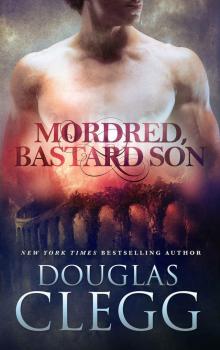 Mordred, Bastard Son
Mordred, Bastard Son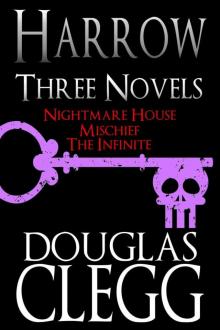 Harrow: Three Novels (Nightmare House, Mischief, The Infinite)
Harrow: Three Novels (Nightmare House, Mischief, The Infinite)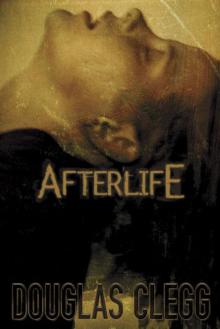 Afterlife
Afterlife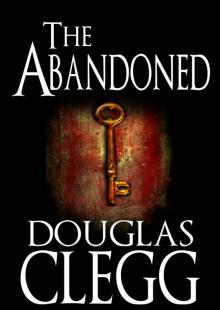 The Abandoned - A Horror Novel (Thriller, Supernatural), #4 of Harrow (The Harrow Haunting Series)
The Abandoned - A Horror Novel (Thriller, Supernatural), #4 of Harrow (The Harrow Haunting Series) The Queen of Wolves
The Queen of Wolves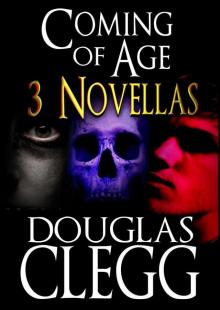 Coming of Age: Three Novellas (Dark Suspense, Gothic Thriller, Supernatural Horror)
Coming of Age: Three Novellas (Dark Suspense, Gothic Thriller, Supernatural Horror)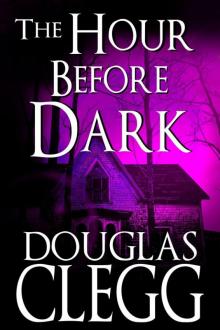 The Hour Before Dark
The Hour Before Dark Isis
Isis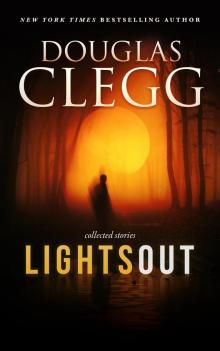 Lights Out
Lights Out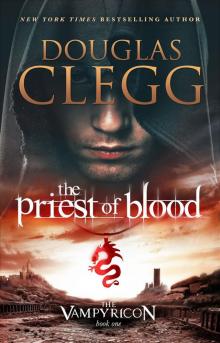 The Priest of Blood
The Priest of Blood Criminally Insane: The Series (Bad Karma, Red Angel, Night Cage Omnibus) (The Criminally Insane Series)
Criminally Insane: The Series (Bad Karma, Red Angel, Night Cage Omnibus) (The Criminally Insane Series) Halloween Candy
Halloween Candy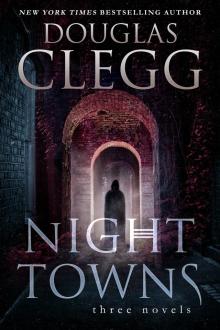 Nights Towns: Three Novels, a Box Set
Nights Towns: Three Novels, a Box Set The Children's Hour - A Novel of Horror (Vampires, Supernatural Thriller)
The Children's Hour - A Novel of Horror (Vampires, Supernatural Thriller)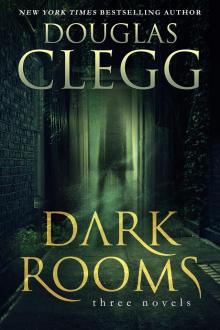 Dark Rooms: Three Novels
Dark Rooms: Three Novels![[Criminally Insane 01.0] Bad Karma Read online](http://i1.bookreadfree.com/i2/04/10/criminally_insane_01_0_bad_karma_preview.jpg) [Criminally Insane 01.0] Bad Karma
[Criminally Insane 01.0] Bad Karma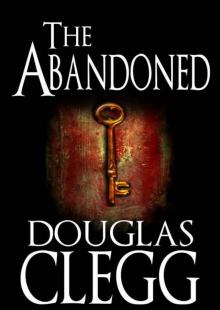 The Abandoned - A Horror Novel (Horror, Thriller, Supernatural) (The Harrow Haunting Series)
The Abandoned - A Horror Novel (Horror, Thriller, Supernatural) (The Harrow Haunting Series) Halloween Chillers: A Box Set of Three Books of Horror & Suspense
Halloween Chillers: A Box Set of Three Books of Horror & Suspense